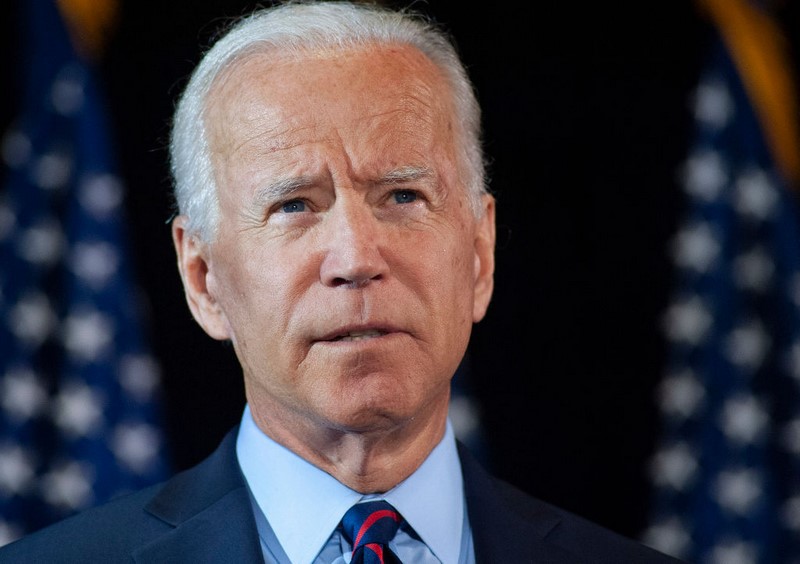adverts
Biden issues clemency, pardoning 39 and commuting sentences for 1,500

In a historic move, US President Joe Biden has granted presidential pardons to 39 individuals convicted of non-violent crimes and commuted the sentences of nearly 1,500 others, including several involved in high-profile multimillion-dollar fraud schemes.
The White House has described this as the largest number of clemency acts issued by any president in a single day.
Biden’s decision follows a wave of recent clemency actions, including the controversial pardon of his son, Hunter Biden, who faced charges related to tax fraud and gun crimes. The president’s latest round of pardons includes individuals who have demonstrated successful rehabilitation, contributing positively to their communities.
adverts
The pardoned individuals had committed non-violent offences, with the majority involved in drug-related offenses. Several of the recipients had been released from prison, and many were recognised for turning their lives around, becoming active members of society. Some had gone on to serve in the military or become community leaders. One notable case involved a 49-year-old veteran who, after being convicted of a drug offence at the age of 21, earned a university degree, served in the military, and volunteered for charitable causes.
The commutations included those who had served sentences during the Covid-19 pandemic under home confinement and individuals whose sentences were deemed excessively long due to outdated laws.
“They have shown that they deserve a second chance,” Biden stated in his announcement.
Among those who had their sentences commuted were individuals convicted of financial crimes.
Notable examples include Timothy McGinn, a former stockbroker who defrauded hundreds of clients, and Jimmy Dimora, a former Ohio county commissioner convicted of accepting bribes worth $450,000.
Another case involved Paul Daugerdas, convicted in 2014 for overseeing fraudulent tax shelters, and Elaine Lovett, who was involved in a $26 million Medicare fraud scheme.
While these decisions reflect Biden’s stance on offering second chances, they have sparked controversy, particularly given the inclusion of individuals convicted of large-scale fraud.
The White House has defended the actions, stressing that each individual demonstrated successful rehabilitation and made contributions to society after their convictions.
The pardons issued by Biden continue a long-standing tradition of executive clemency. Under the US Constitution, the president has the power to grant pardons for federal offences, except in cases of impeachment. Historically, presidents use this power to offer mercy to individuals who have shown remorse or have rehabilitated themselves.
Biden had previously been cautious in granting pardons, with his clemency actions having been relatively limited compared to other modern presidents. In 2022, he issued a full pardon for those convicted of simple marijuana possession, expanding it later to include other related offences.
He also pardoned military personnel and veterans convicted of offences related to their sexual orientation.
Biden’s decision to pardon his son, Hunter, who was under investigation for tax fraud and gun crimes, has generated significant political controversy. Critics argue that the pardon is politically motivated, while Biden maintains that the charges against his son were part of a politically driven campaign. This move mirrors a broader trend of presidents using their clemency powers to protect family members, a practice seen across both Democratic and Republican administrations.
Biden has also considered issuing preemptive pardons for individuals who might face prosecution under the incoming administration of Donald Trump, particularly in relation to investigations into the Biden family. The president has expressed concern about the precedent such actions could set but is reportedly weighing the possibility.
In comparison, former President Donald Trump issued 237 acts of clemency during his first term, including 143 pardons and 94 commuted sentences. Many of these were granted in the final days of his presidency. Trump has also promised to issue pardons on his first day back in office, specifically for those involved in the January 6, 2021, Capitol riot, if he is re-elected.
Trump’s approach mirrors Biden’s in some ways, as both presidents have used their clemency powers to address cases they see as unjust, but they have drawn different lines regarding who is deserving of such mercy.
As Biden prepares to leave office on January 20, 2025, his clemency actions continue to raise questions about the scope of presidential power and the broader implications for justice in the United States. The public and political reactions to these actions will likely be a key topic in the coming months as the US navigates the transition to a new administration.

